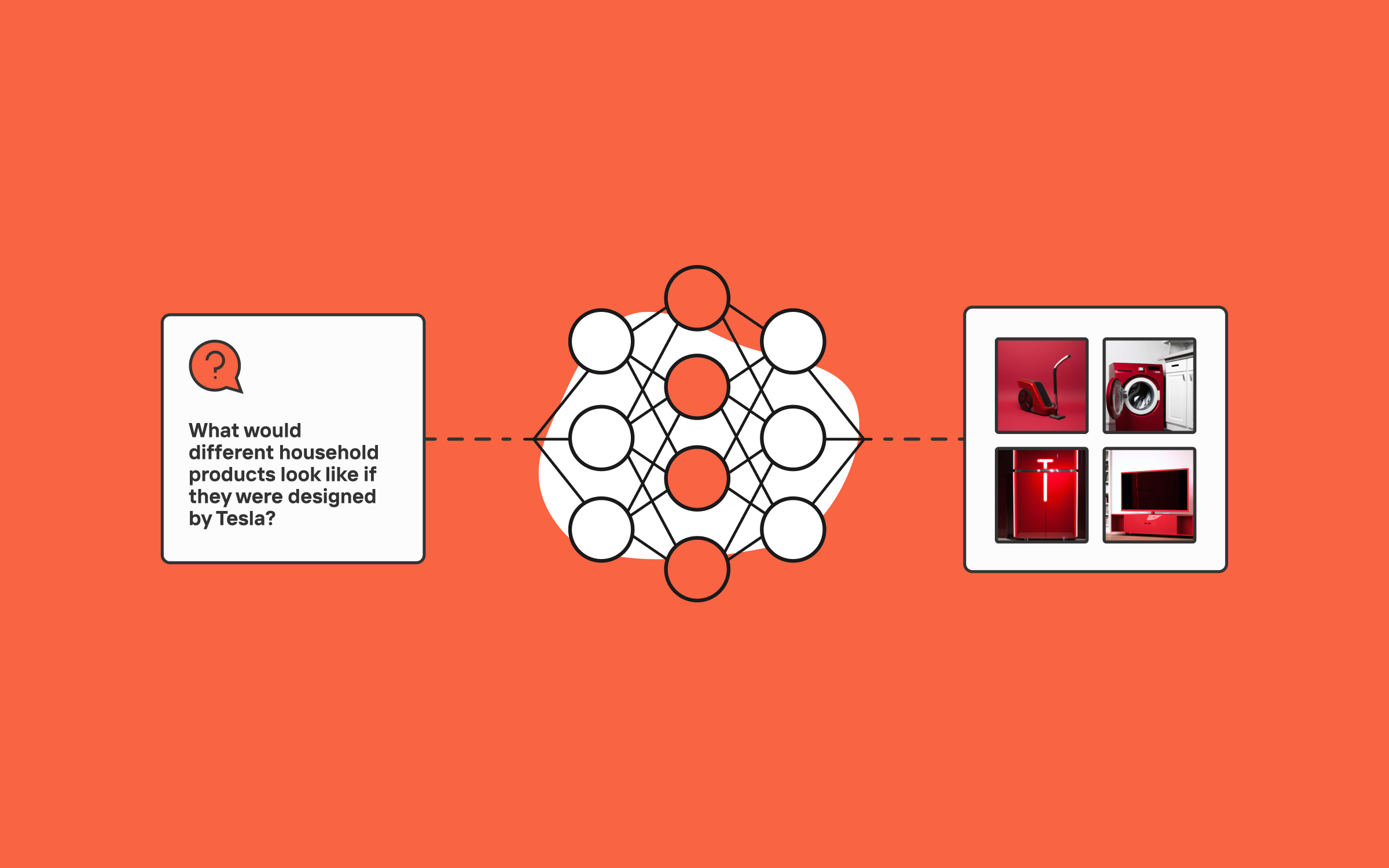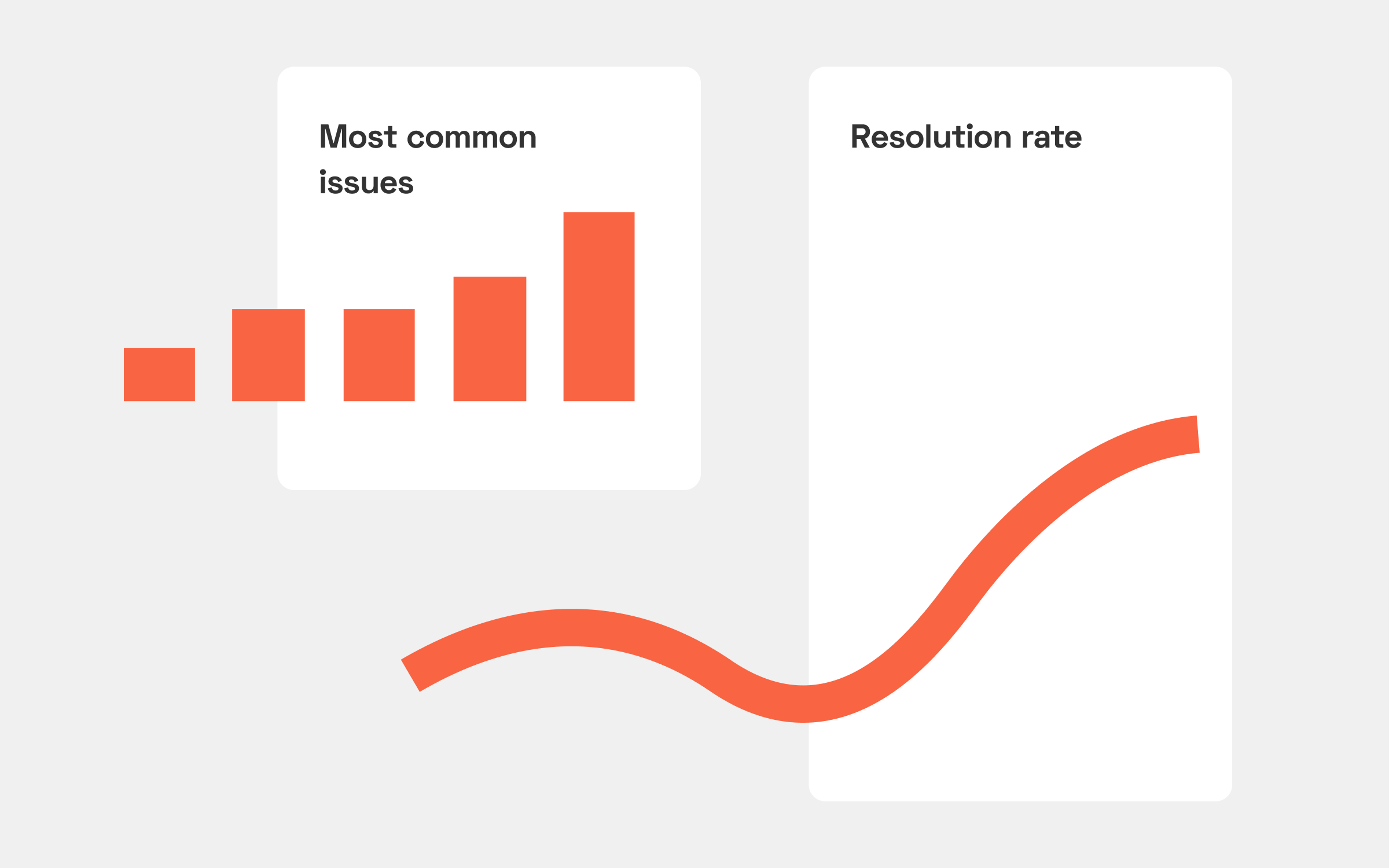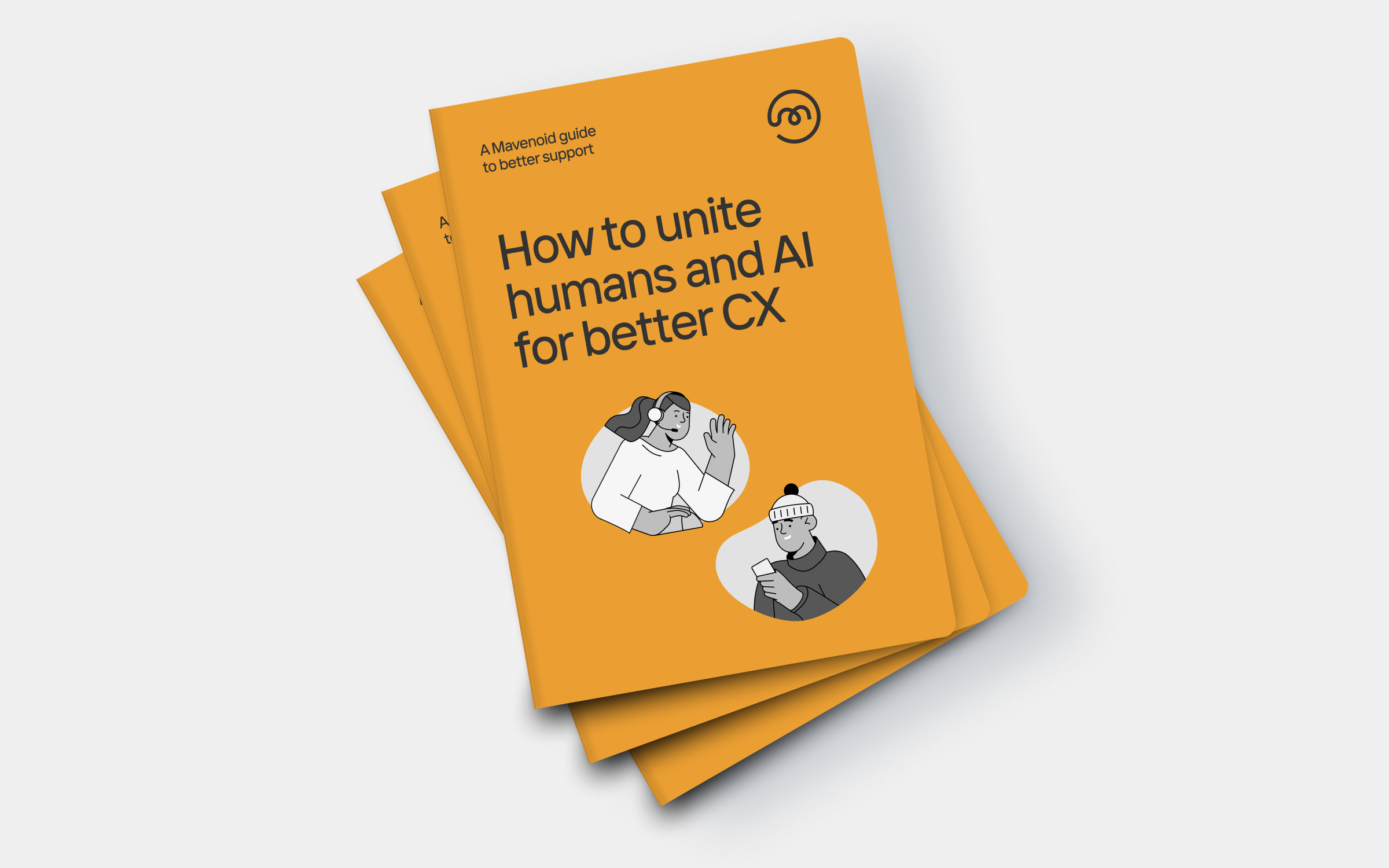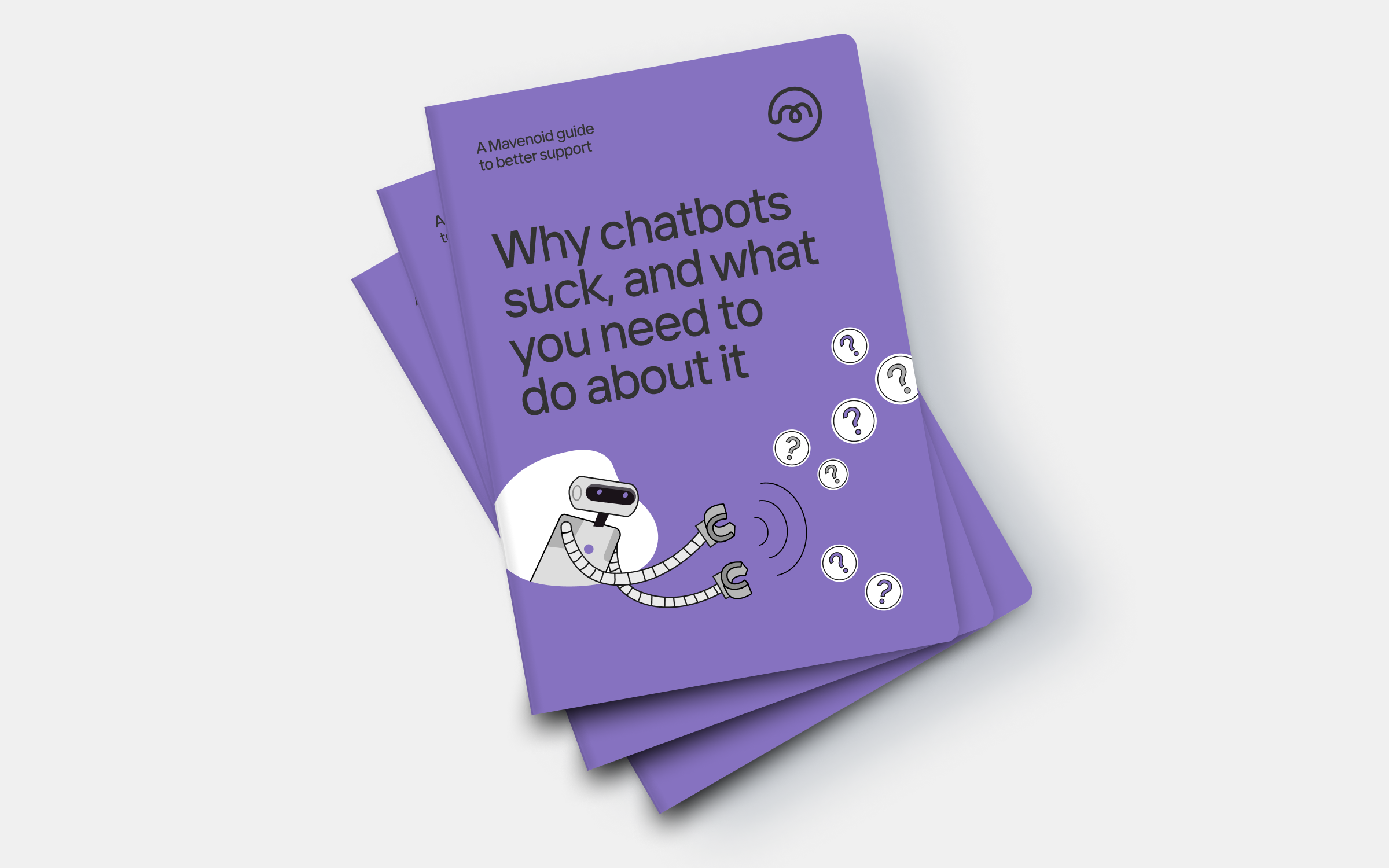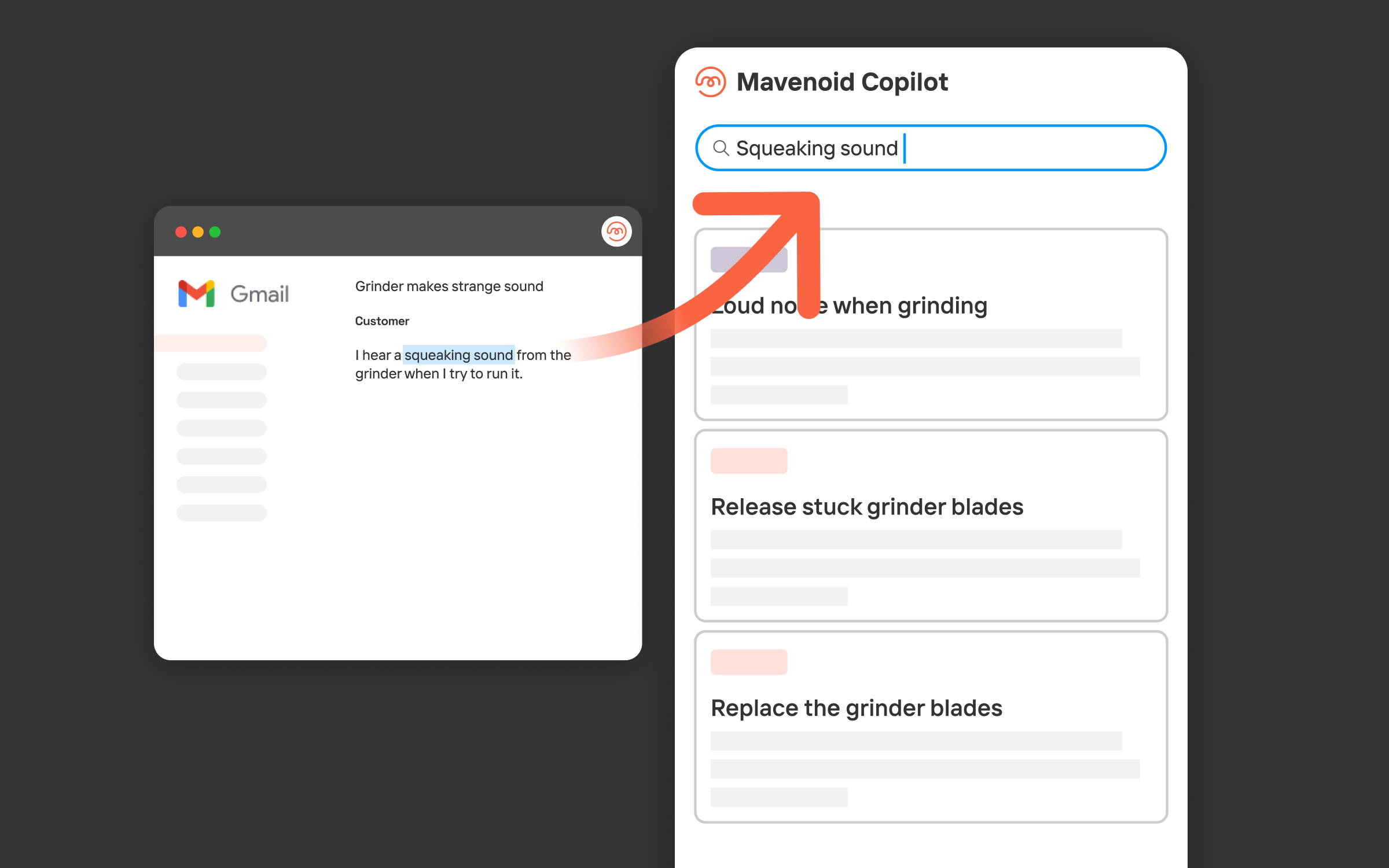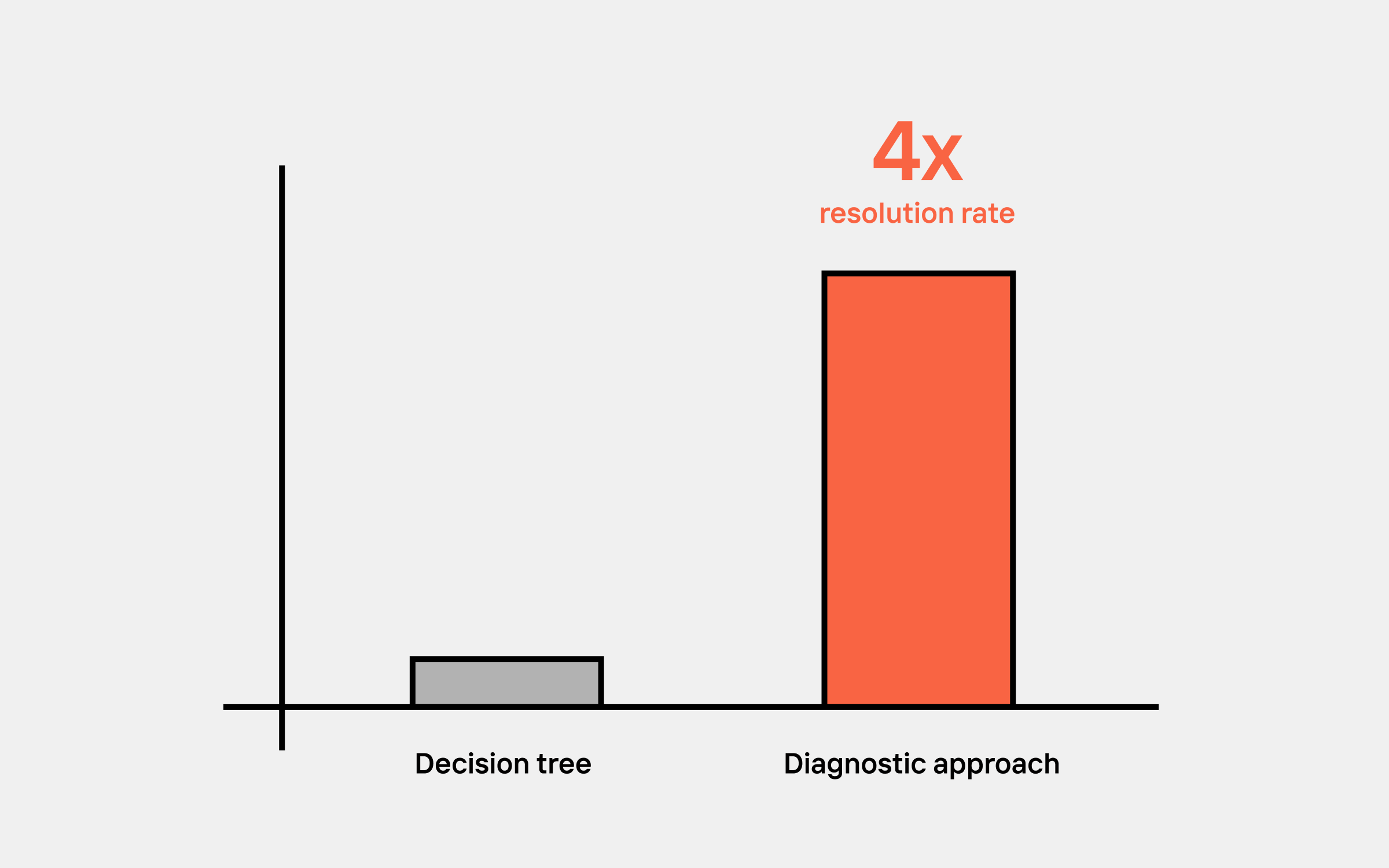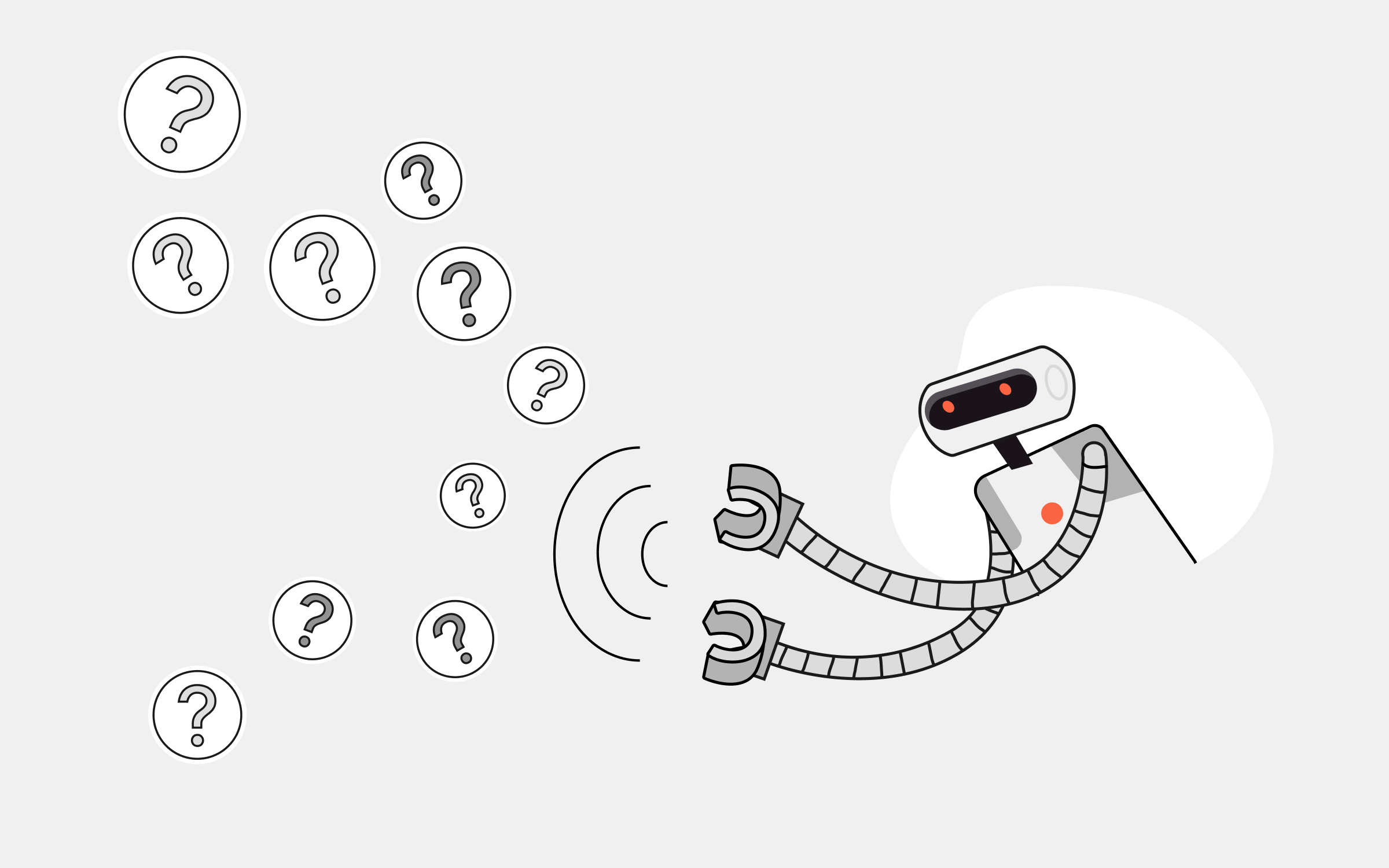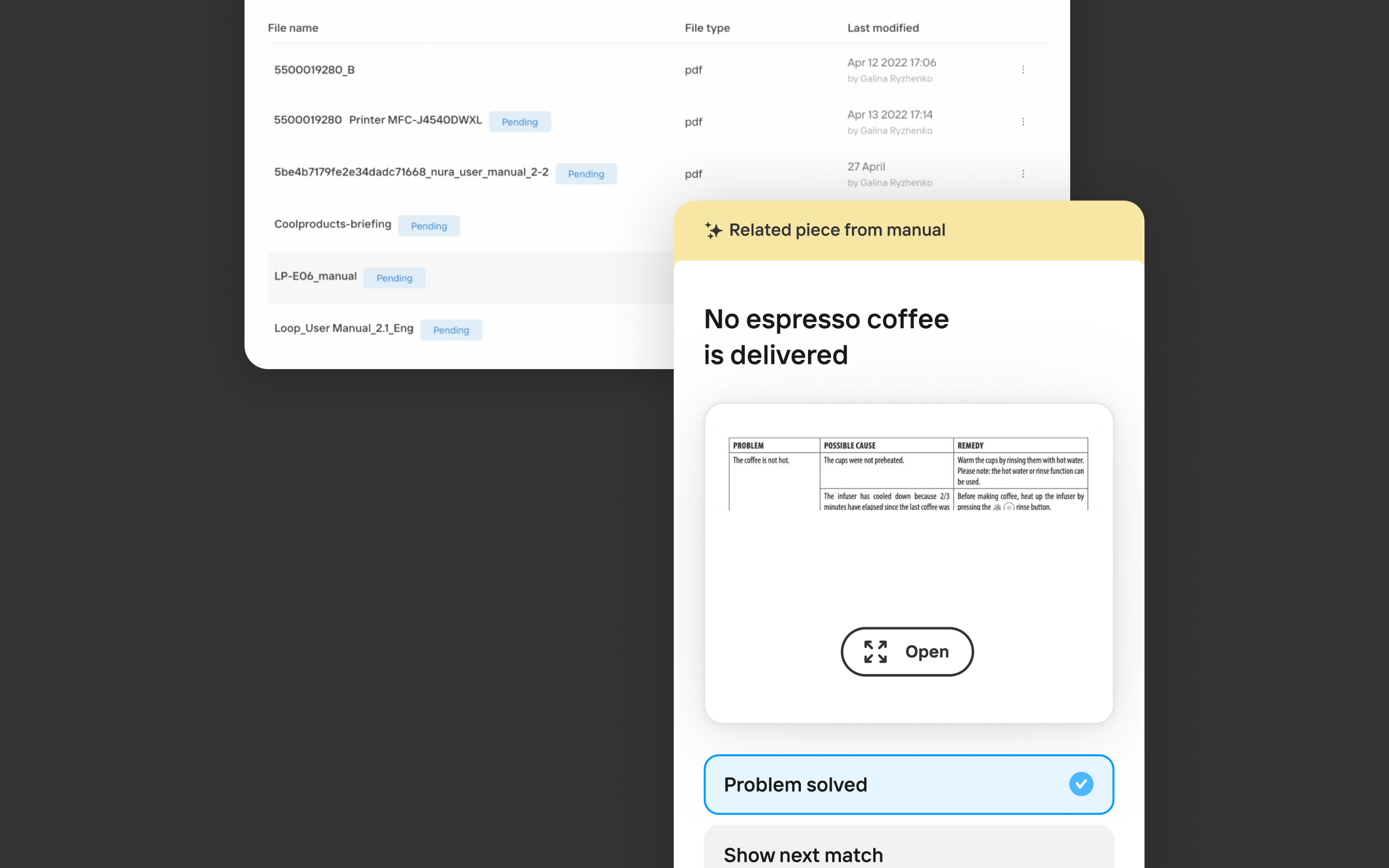Artificial intelligence (AI) has made significant advancements in recent years, with a high potential to revolutionize customer support. Customer support encapsulates a wide range of activities – from repetitive tasks, to virtual troubleshooting, to live phone agents, and field service. AI has begun to impact each of these areas of customer support, bringing value to both brands and customers.
Known product support challenges
Customer support for products and devices is challenging because of the wide range of devices and systems, each with its own specific troubleshooting requirements. This makes it difficult for service providers to diagnose and troubleshoot problems remotely, and to provide consistent and accurate solutions across different platforms and scenarios. There is a high level of detailed expertise required to solve support issues, making support automation a difficult task.
Another challenge of product support is the cost and time involved. Today, most support automation solutions are simple chatbots that can handle easy and repeatable questions, but any complex troubleshooting is typically sent to a live agent over the phone. Troubleshooting over the phone is much more expensive to answer vs. automated solutions ($8.10 vs. $0.10, according to Gartner), so companies are incentivized to implement more cost-effective automated solutions.
In addition to cost, brand reputation is another area where customer support plays a significant role. Product support can be time-consuming and frustrating for customers and easily turn a good customer experience bad. On the other hand, meeting customers’ needs and quickly resolving their issues can generate goodwill and win brand loyalty.
When it comes to field service, more than 30% of visits do not resolve the issue on the first attempt, due to factors like incorrect problem diagnosis or a lack of necessary tools or parts. At the same time, up to 14% of field support issues are found to not require a technician at all. In those cases, customers only need an explanation of how to use the product, rather than a technician to troubleshoot an issue.
Six ways to implement AI for better product support
Product support has much to gain from implementing AI to enhance service quality, bring predictive capabilities of support teams, and increase operational efficiency.
1. Optimizing field service to reduce the need for on-site visits
AI can play a pivotal role in reducing the number of field service technician visits, and making those that need to happen more efficient.
Pre-visit AI diagnostics can be introduced to analyze a customer’s problem description, historical data, and even real-time data from the hardware to diagnose the issue accurately. Armed with this knowledge, technicians can better prepare for their visits, or determine if the visits are necessary at all. They can bring the necessary tools and parts, understand the problem and the steps needed to solve it, and even access AI-generated troubleshooting guides while on-site.
For example, AI-powered mobile apps can provide real-time guidance, suggest solutions based on similar past issues, or offer step-by-step troubleshooting guides. Such tools can empower technicians to solve even the most complex and rare issues more effectively with just one visit. This preparation can significantly increase the rate of first-time issue resolution, saving time and resources for both the company and the customer.
2. More personalized self-service
Unlike simple chatbots, AI-powered product assistants are capable of more complex interactions. These virtual assistants can understand context, remember previous interactions, and provide hyper-personalized support. They can also interact through various channels, including voice and text, offering step-by-step, visual diagnostic guidance for problem resolution.
However, when it comes to products and devices, standard Large Language Models (LLMs) like GPT-4 are not reliable or safe for handling end-user queries. They may make costly mistakes. Only solutions that use models specifically trained to troubleshoot products and devices can intelligently handle both repetitive and complex issues effectively.
3. Faster support content creation
LLMs can be useful to parse support content at scale. Product and device companies typically have a great amount of support documentation for each product version across their entire catalogs. This content needs to be managed, improved, and structured, which is something that LLMs are able to easily do at scale across a large amount of support documentation.
In terms of creating and maintaining support content, generative AI can be used to do this quickly at scale. This process includes developing troubleshooting guides, FAQs, and other support materials based on the most common issues. Generative AI is applied to use existing support documentation, such as product manuals and support articles, and the AI can surface relevant support content and build this into virtual troubleshooting flows. Applying AI to this process can greatly improve the efficiency and relevancy of support content, as well as save thousands of hours for support teams.
While the potential impact of AI for customer support is high, not all AI models are created equally.
Many simple chatbot solutions have come to market quickly, built on the back of GPT-4 and other open LLMs. These chatbots offer a quick, and often inexpensive, option to introduce automated support. However, brands must be aware that open AI models can introduce uncertainty and provide inaccurate information. This can be serious when dealing with products such as lawnmowers or industrial cranes, where there is no room for error. Brands should instead look to solutions that use AI that is specifically trained to handle complex product-specific troubleshooting scenarios. These closed-source models are better positioned to resolve customer support issues with accurate information.
4. Proactively preventing support issues
An increasing number of devices have become part of the Internet of Things (IoT) ecosystem. Devices, from everyday household appliances to specialized industrial equipment, are now capable of transmitting information about their operational status and performance in real-time. Harnessing this vast pool of data can unlock tremendous potential for customer support.
Predictive maintenance powered by AI will allow brands to analyze device data to predict potential failures before they occur. This can significantly reduce downtime and the associated costs. Algorithms can also suggest preventative measures to mitigate the predicted problems, while manufacturers can build proactive support flows that will trigger outreach to customers, providing recommendations around preventative maintenance.
Brands can create new revenue streams through this predictive AI. By analyzing such factors as customer behavior and purchase history paired with predictive maintenance signals, AI can provide relevant, personalized recommendations for purchasing spare parts, new products, or additional services. This opens opportunities for generating additional revenue through upselling and cross-selling customers.
5. Optimized live support efficiency
AI algorithms can perform real-time analysis and diagnostics, identifying issues as they occur, which can significantly reduce the time spent by support agents on problem identification, speeding up the resolution process, improving service quality, and customer satisfaction.
Moreover, even introducing the simplest and most straightforward agent assist features such as suggesting a canned response or summarizing previously taken self-service troubleshooting steps can reduce average resolution time by 10-15%. This, implemented together with efficient self-service support options can already significantly optimize product support teams efficiency.
6. Building better products
Another way that AI is able to drive impact for brands is in research and development (R&D). AI can provide R&D insights through data analysis of common support issues. When the most common support issues are identified, AI can provide recommendations to improve existing products or develop future products to address those support concerns. We’re already seeing this in action for how semiconductor chips are designed.
Conclusion
Overall, the implementation of AI in product support has the potential to revolutionize the field, providing more personalized support, improving operational efficiency, and opening new opportunities for revenue and product development.
AI now makes it possible for brands to offer more personalized and efficient customer support. It can enhance the self-service experience, prevent issues before they occur, provide real-time diagnostics, and improve the speed and relevance of support content creation. It can also provide invaluable insights for product development and innovation.
As we consider the potential of applying AI to customer support, it's time to double down on developing a future-proof AI-powered product support strategy. Whether it's introducing smarter self-service or getting started with generative AI for streamlining your support content creation, AI can make a substantial impact on your operational efficiency and customer satisfaction.




.png)

.png)
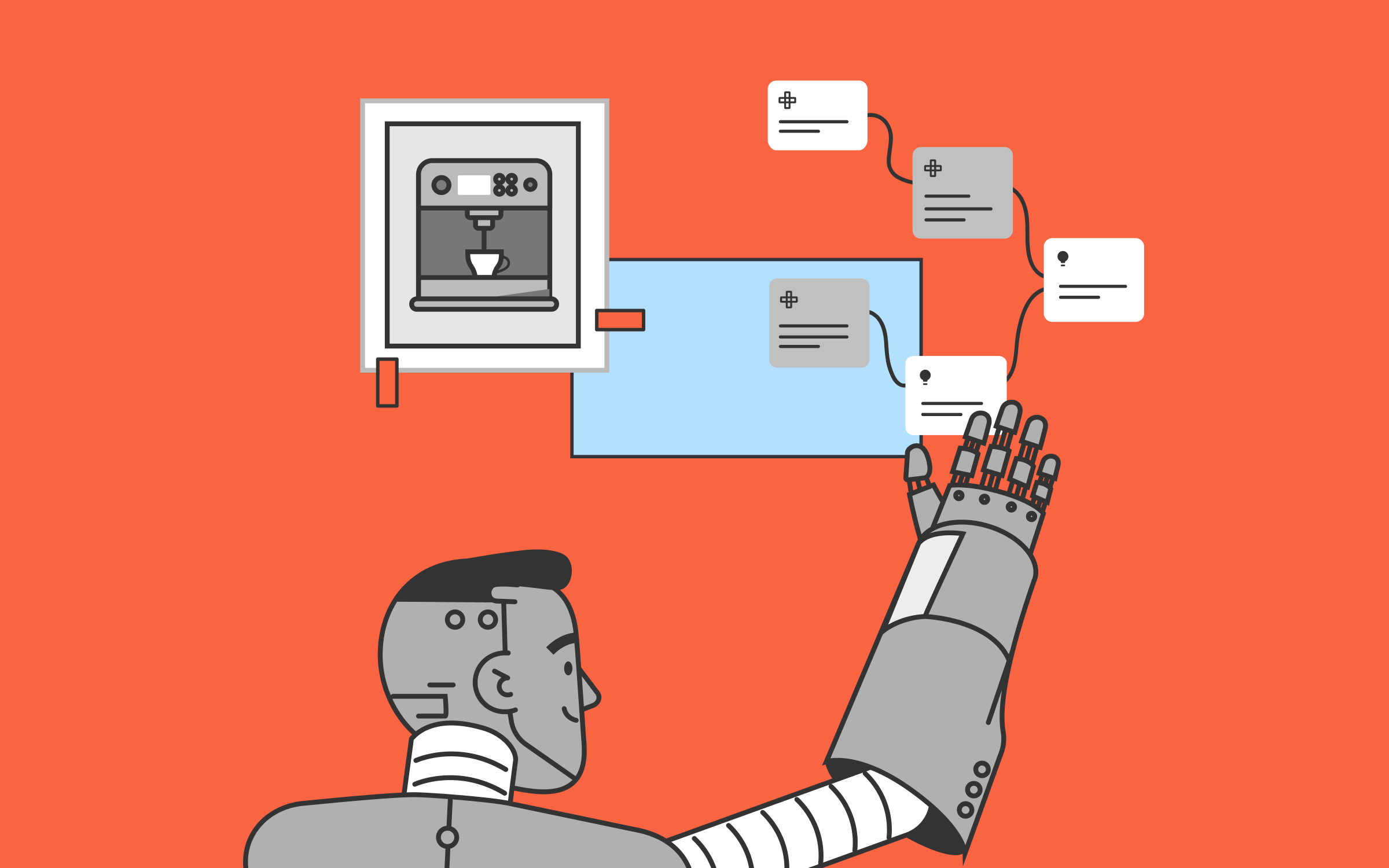
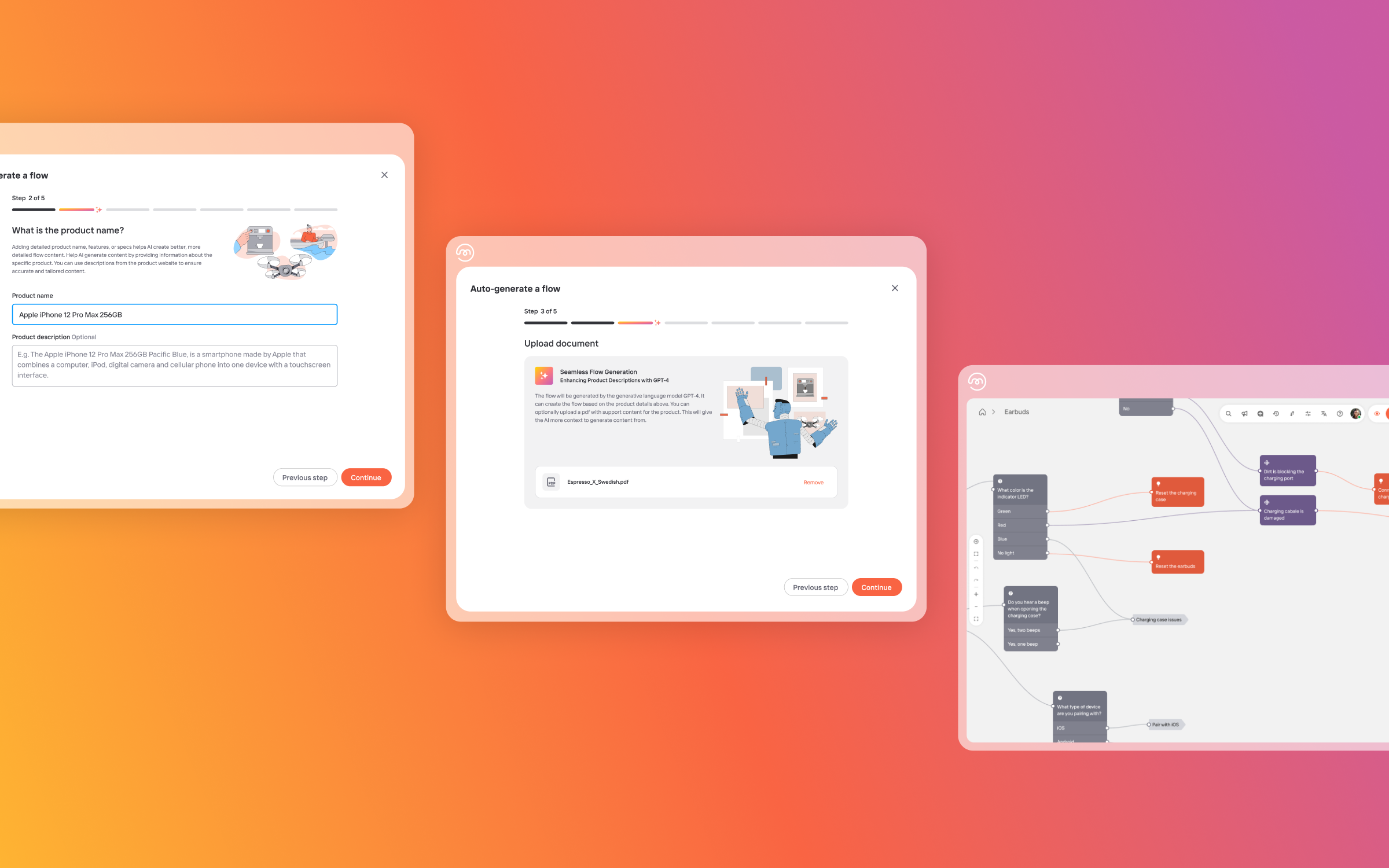
.png)
.png)





